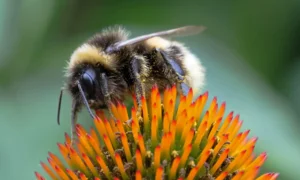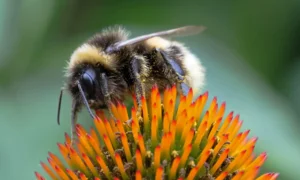Glyphosate Weedkiller Damages Wild Bee Colonies, Study Reveals
{Glyphosate Weedkiller – Earth and Leaf Editorial}
{extract below}

Glyphosate weedkiller damages wild bee colonies, study reveals
The critical ability of wild bumblebees to keep their colonies at the right temperature is seriously damaged by the weedkiller glyphosate, research has revealed.
Glyphosate is the most widely used herbicide in history, intended to kill only plants. The harm to bumblebees – vital pollinators – was not identified in regulatory risk assessments, which only test whether a herbicide rapidly kills healthy, individual bees. However, the collective failure to regulate colony temperature could have a massive impact on its ability to produce the next generation, the scientists said.
The damage seen in the study occurred when the colonies were running short of food. This is common in farming regions, where wildflowers can be killed directly by glyphosate. The research is the first on wild bees, of which there are 20,000 species, though glyphosate had already been shown to harm honeybees by damaging larvae and the senses of adults.
Today’s link to our pages or posts . . .
Lego-pushing bumblebees reveal insect collaboration dynamics
